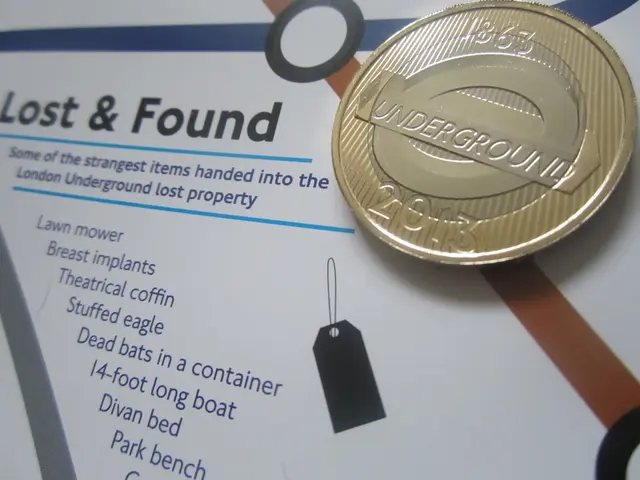Bremen Experiences Significant Rent Hikes
Renting in German Cities: A Relentless Climb in Costs
Wander through Germany's urban hubs, and you'll soon find yourself caught in the web of escalating rental costs, despite the imposed rent control regulations. Bremen, for instance, has seen an astounding 50% jump in average rent over the last decade alone.
In the portfolio of the 14 leading independent cities, average rent prices have climbed by nearly 50% since 2015, as per an analysis by the Federal Ministry of Housing. The price per square meter in Munich stands at a hefty nearly 22 euros, followed closely by Berlin (almost 18 euros) and Frankfurt am Main (around 16 euros). In Bremen, the current average square meter rent hovers around 11 euros, a stark contrast to the 7 euros in 2015.
The biggest rent escalations are attributed to Berlin (up 107%), Leipzig (up 67.7%), and Bremen (up 57%). The lowest rent increase after relocation is reported for Dresden at 28.4%.
Data backed by the Federal Institute for Building, Urban Affairs and Spatial Research (BBSR) points to a reality skewed by the offers prospective tenants encounter while scouring the internet for a rental property between 40 to 100 square meters. Advertisements, waiting lists, and direct real estate agent mediation, however, remain outside the realm of consideration, potentially skewing the statistics.
Critique of the Situation: Left Party MP Caren Lay
Caren Lay, a Left Party MP, questioned the effectiveness of the existing rent control system: "The skyrocketing rents place an unbearable burden on urban tenants, making relocations unfeasible and contributing to an unpleasant ripple effect in our society."
Lay tackled the rent control as riddled with loopholes and devoid of substantial protection. She criticized the incumbent black-red federal government for their efforts to lengthen the regulation without further amendments.
Navigating the Maze: The Tenants' Role
The rent control mechanism imposes a 10% limit on rent increases in regions troubled by a housing crunch. It applies to new contracts, with the local comparable rent serving as a benchmark. However, exceptions exist—furniture surcharges, for example—and modernized apartments that first hit the rental market post-2014 are also given a pass. New builds are not subject to any price control. If tenants suspect a violation, they must independently take action against their landlords.
A Closer Look: Understanding the Rent Hike
Rising rents in German metropolises are a complex tapestry woven by various factors:
- Housing Shortage: The ongoing and intensifying deficit in housing supply within Germany's large cities stands as the primary catalyst for the upward trend in rents. Construction volumes lag behind demand by a significant margin, with build permits plunging by 13.4% year-over-year in 2024, marking a fifth successive year of waning construction output [2][5]. New housing completions fall about 200,000 units short of government objectives annually. This mismatch creates ultra-low vacancy rates, as low as 1% in cities like Munich, Berlin, Frankfurt, and Hamburg, fostering a seller’s market and fueling competition among potential renters [2][5].
- High Demand: Demand for rental housing remains consistently high, fueled by urbanization, shrinking household sizes, and immigration. For instance, Berlin needs approximately 23,000 new apartments yearly, with other cities such as Munich and Hamburg facing substantial annual housing requirements [2][5].
- Challenges with Rent Control Policies: Germany's rent control measures, known as the "Mietpreisbremse," cap new rental rates up to 10% above local comparable rents for new contracts. Its extension through 2029 aims to quell rapid rent increases [1][2]. However, the regulations only impose a cap on new contracts, failing to address the issue of escalating existing high rents. Moreover, the Federal Constitutional Court invalidated Berlin's ambitious rent freeze (the "Mietendeckel") in 2021, restricting the scope and impact of rent control policies nationwide [3].
- Market Dynamics and Price Pressure: With construction unable to keep pace with demand and a persistent housing shortage, property prices and rents continue their upward trajectory. Apartments have seen a year-over-year increase of around 3.2%, and single-family homes even more, at 4.7%. The scarcity sparks competition among renters, leading to soaring rents even under the legal caps for new leases [2][5].
- Government Response and Outlook: The German government acknowledges the crisis and intends to boost housing construction through streamlined approval procedures, the promotion of modern techniques, and the expansion of residential land. However, these efforts may not provide immediate relief, and rent pressure will likely persist in the near term [2].
Bremer, as a rental property investor, might find the rental market in Bremen particularly attractive given the significant increase in average rent prices over the past decade, which has reached nearly 11 euros per square meter. However, Lay, a Left Party MP, criticizes the existing rent control system for being ineffective, with loopholes and insufficient protection for urban tenants, who struggle under the burden of skyrocketing rents.








